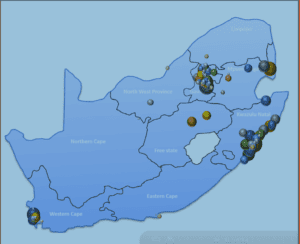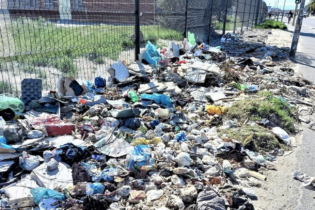The Department of Environment Affairs has released a study to facilitate the large-scale uptake of alternative transport fuels in South Africa entitled, “The case for Biogas”.
The main objective of this study is to establish an understanding of the economic and practical potential for compressed biogas (CBG )as an alternative transport fuel and greenhouse gas (GHG) mitigation measure. This could provide the basis for the further development of policies promoting biogas for transport and the emergence of a national CBG industry. Background This study is part of a programme under the Strategic Climate Policy Fund (SCPF), established by the Department for International Development (DFID) of the United Kingdom (UK) government and managed by Cardno Emerging Markets (UK) Ltd on behalf of the Department of Environmental Affairs (DEA). The purpose of the fund is to translate the mitigation plans outlined in the National Climate Change Response White Paper (NCCRWP) (Republic of South Africa, 2011) into feasible mitigation actions.Objectives of the study include: The development of a national biogas inventory, including an indication of the quantity, quality and availability of biogas as a potential transport fuel; an assessment of the financial viability of the main CBG production processes, as well as the macroeconomic effect and the national greenhouse gas (GHG) mitigation impact and the identification of opportunities for policy interventions by government in collaboration with business, with the aim of stimulating the application of CBG as an alternative transport fuel.
Relevant waste sources The total biogas potential from sources captured in the inventory is around three million normal cubic metres (Nm3) per day, of which the majority can be found in the sugar and municipal solid waste (MSW) sectors. The majority of potential biogas sources are located in the proximity of South Africa’s urbanised centres, along the KwaZulu-Natal coast, in Gauteng and around Cape Town. A key finding in the study is that that, with a share of 38% of the total volume, the MSW sector is the largest contributor to the country’s biogas potential, and that these sources are all located in close proximity of urbanised areas. Several of the sources within this sector are among the ten largest point sources identified. From this, one can conclude that local governments in South Africa have the potential to control and/or operate a large share of the country’s potential biogas-for transport sources, making it ideally positioned to drive the large-scale uptake of biogas as a transport fuel. To read the full report, click here







